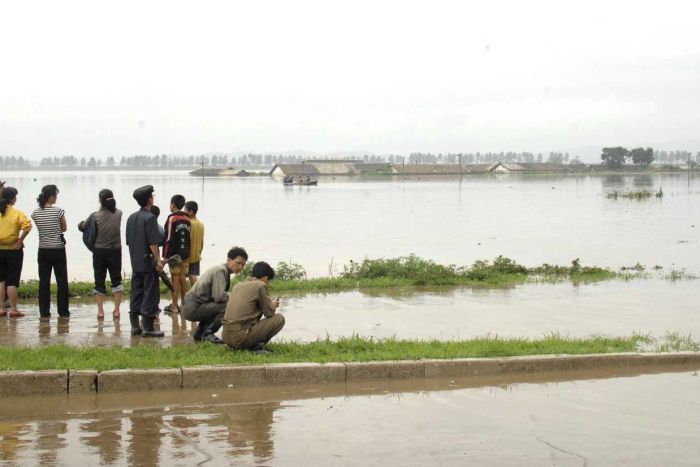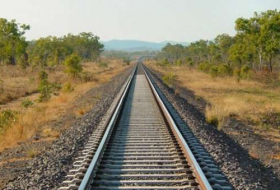People in the northeastern region near the border with China and Russia are suffering “great hardship,” according to North Korean state media.
A nationwide mass-mobilization 200-day labor campaign intended to bolster the economy has been redirected to assist the flood victims.
More than 35,500 houses have been hit by floods, with 69 percent of them completely destroyed, and 8,700 public buildings have been damaged, the U.N. Office for the Coordination of Humanitarian Affairs (OCHA) said in a statement dated Sunday.
Around 16,000 hectares (39,540 acres) of farmland have been inundated and at least 140,000 people urgently need help, it said.
OCHA said a group made up of U.N. agencies, international NGOs, the international Red Cross and the North’s Red Cross had visited parts of the flood-stricken region last week to assess needs.
It said aid agencies have released material from stockpiles in the North such as food, shelter and kitchen kits and water purification and health supplies.
The North’s government was working urgently to reopen roads and was distributing relief goods and building materials. The priority was to rebuild 20,000 homes by early October before the bitter Korean winter sets in.
The North has trumpeted the role of its ruling Workers’ Party in responding to the disaster in North Hamgyong province.
The aim is “to turn the area into the fairyland in the era of the Workers’ Party within this year by dint of army-people great unity, harmonious whole,” said party newspaper Rodong Sinmun on Monday.
“The party regards the work for taking care of the people’s life in a responsible way as the most important affair and duty and has steadily created legendary stories about love for the people,” it added.
Impoverished North Korea is vulnerable to natural disasters, especially floods. At least 169 people were killed by a massive rainstorm in the summer of 2012.
Its territory is largely composed of mountains and hills that have long been stripped bare for fuel or turned into terraced rice fields. This allows rainwater to flow downhill unchecked.
A series of floods and droughts was partially responsible for a famine that killed hundreds of thousands between 1994 and 1998, with economic mismanagement and the loss of Soviet support exacerbating the situation.
The U.N. Food and Agriculture Organization said in April that North Korea’s chronic food shortages were expected to worsen, given the tight food supplies last year and this year when “most households were already estimated to have poor or borderline food consumption levels.”
The United Nations Security Council is planning fresh sanctions on the nation after it staged its fifth nuclear weapons test Friday.
More about:
















































